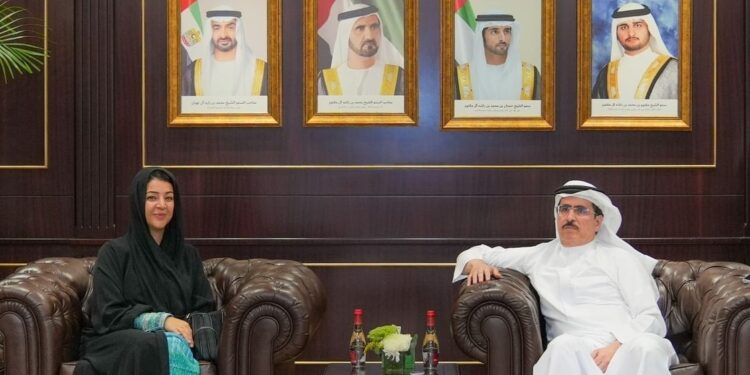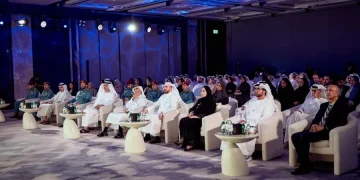Saeed Mohammed Al Tayer, Managing Director and CEO of Dubai Electricity and Water Authority (DEWA), recently met with Reem bint Ebrahim Al Hashimy, CEO of Expo City Dubai Authority, to discuss ways to enhance their collaboration on clean energy and sustainability initiatives.
Building Strategic Partnerships for Sustainable Growth
The meeting focused on expanding their partnership to “broaden horizons, leveraging DEWA’s expertise in delivering world-class services and adopting global best practices to promote sustainable development and global leadership in the field.”
Both leaders emphasized their shared vision of advancing renewable energy and reinforcing the UAE’s position in environmental innovation.
Joint Initiatives for a Greener Future
Discussions centered around joint projects that reflect the UAE’s “unwavering commitment to advancing sustainable solutions and increasing the share of renewable energy.”
Reem bint Ebrahim Al Hashimy expressed her appreciation for DEWA’s efforts, stating that they play a pivotal role in “advancing the transition to clean energy” and strengthening “the UAE’s position as a major supporter of sustainability worldwide.”
This collaboration aligns with the UAE’s broader goals to promote sustainable solutions and work towards achieving international clean energy targets.
DEWA’s Vision and Progress in Renewable Energy
During the meeting, Al Tayer highlighted DEWA’s ambitious strategies in clean energy, driven by the UN Sustainable Development Goals (SDGs) for 2030.
He outlined key frameworks, including the UAE Energy Strategy 2050 and the Dubai Net Zero Carbon Emissions Strategy 2050, which aim to provide “100% of Dubai’s power capacity from clean energy sources by 2050.”
These initiatives are critical to establishing Dubai as a global hub for renewable energy projects, supporting the UAE’s leadership in sustainability and clean energy innovation.
Major Solar Projects Supporting Net Zero Goals
Al Tayer also highlighted DEWA’s flagship project, the Mohammed bin Rashid Al Maktoum Solar Park, which he described as “the largest single-site solar park in the world.” It currently has a commissioned capacity of 2,860 MW, with an additional 1,800 MW under construction. By 2030, renewable energy is expected to contribute about 27% of Dubai’s total energy production.
The solar park is projected to “reduce over 6.5 million tonnes of carbon emissions annually,” playing a key role in Dubai’s efforts to transition to a sustainable economy.
A Unified Commitment to Sustainability
“In line with the vision and directives of our wise leadership, the UAE continues to strengthen its global leadership in sustainability and clean energy. The strategic cooperation between DEWA and Expo City Dubai marks an important step towards achieving our ambitious goals, including reaching net zero by 2050. This reaffirms our commitment to addressing climate and environmental challenges through innovative and sustainable solutions.” Al Tayer stated.














